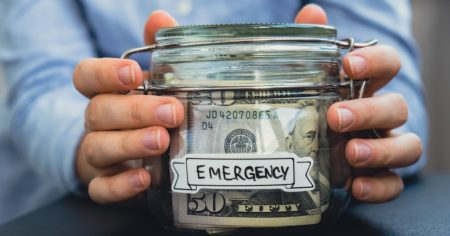Key Takeaways:
- You don’t need to borrow more money to get out of debt. Alternatives like budgeting, prioritizing debts, negotiating with creditors, and seeking nonprofit credit counseling can be more effective.
- Household debt reached $18.59 trillion in Q3 2025making structured, sustainable repayment strategies more important than ever.
- Two powerful payoff strategies – the Snowball and Avalanche methods help consumers attack balances systematically.
- A Debt Management Plan (DMP) through a nonprofit like ACCC can consolidate payments, reduce interest rates, and provide long-term relief without taking on new debt.
- Building an emergency fund, improving financial habits, and getting individualized support are key to preventing future debt cycles.
In a world where financial responsibility is paramount, many individuals and families find themselves caught in a cycle of debt that seems unbreakable. Did you know that household debt is at 18.59 Trillion in the 3rd quarter of 2025 according to Federal Reserve Bank of New York. It’s easy to feel overwhelmed, especially when consolidation loans are often touted as the solution. However, there are smarter, more sustainable ways to tackle debt without borrowing more money.
At American Consumer Credit Counseling (ACCC), we focus on proven, sustainable strategies that help people pay down debt without borrowing more money and ultimately regain control of their financial lives.
Understanding the Debt Cycle
Before diving into solutions, it’s important to understand the debt cycle. This cycle often begins with a single debt, like a credit card balance, that becomes difficult to pay off. As interest accrues, the debt grows, leading many to take out consolidation loans to manage the increasing burden.
Unfortunately, this can sometimes exacerbate the problem by introducing more debt, rather than eliminating it.
9 Proven Strategies to Pay Off Debt Without Borrowing
1. Assess Your Financial Situation: Get The Full Picture
The first step toward breaking free from debt is to conduct a thorough assessment of your financial situation. of your financial situation. Begin by gathering all your financial documents, like bank statements, bills, and credit card statements. List each debt with amounts owed, interest rates, minimum payments, and due dates.
Now this might seem like a daunting task, but it’s a crucial step in understanding where you stand and forming a clear picture of your financial obligations.
2. Prioritize Your Debts – Avalanche vs Snowball Method
Once you’ve assessed your debts, it’s time to prioritize them. There are two popular strategies for this: the avalanche method and the snowball method.
- Avalanche Method: Focus on paying off the debt with the highest interest rate first, while making minimum payments on the others. This method can save you money on interest over time.
- Snowball Method: Start by paying off the smallest debt first, regardless of the interest rate, to gain a psychological boost and momentum. Once the smallest debt is cleared, move on to the next smallest, and so on.
Both strategies have their benefits, and the best choice depends on your personal preference and specific financial situation.
3. Create a Realistic Budget: A Necessity
A realistic budget is a cornerstone of debt management. Start by tracking your monthly income and expenses to identify areas where you can cut back. Make sure you allocate a portion of your income specifically for debt repayment, ensuring it’s a priority over discretionary spending. Don’t forget about automating your savings account!
Consider employing the 50/30/20 rule: allocate 50% of your income to needs, 30% to wants, and 20% to savings and debt repayment. Adjust these percentages as necessary to accommodate your debt payoff goals.
4. Look for Ways to Increase Your Income
While cutting expenses can free up money for debt repayment, increasing your income can accelerate the process. Explore opportunities for overtime at work, take on a side hustle, or sell unused items. Even small increases in income can make a significant difference when applied consistently to your debt.
5. Negotiate with Creditors
Many people underestimate the power of negotiation. Creditors are often willing to work with you if they see you’re making a genuine effort to repay your debts. Contact them to discuss options like lowering interest rates, waiving fees, or setting up a repayment plan. This step requires courage and persistence, but it can result in more manageable payments.
6. Explore Community & Nonprofit Resources
According to TransUnion, one of the three biggest credit reporting agencies in the U.S., the average credit card debt per American in July 2025 was $6,492. That’s up $160 from $6,332 in July 2024. Therefore, understanding the numerous community resource options available to help individuals manage debt without borrowing is crucial.
Non-profit credit counseling agencies, like American Consumer Credit Counseling, offer free or low-cost services, including budgeting assistance, debt management plans, and educational workshops. These resources can provide personalized guidance and support throughout your debt repayment journey.
7. Build an Emergency Fund
While it might seem counterintuitive to save while paying off debt, having an emergency fund can prevent future borrowing. Start with a small goal, such as $500, and gradually increase it. This fund acts as a financial cushion, reducing the need for credit cards or loans in the event of unexpected expenses.
8. Practice Financial Mindfulness
Cultivating a mindful approach to finance can lead to better long-term habits. Regularly review your budget, track spending, and reflect on your financial goals. This practice encourages conscious decision-making and helps prevent impulse purchases that can derail your progress. Consistency is key!
9. Seek Professional Guidance
If managing debt independently feels overwhelming, consider seeking professional help. Certified credit counselors can offer tailored advice and assist in creating a debt management plan. Remember, reaching out for help is a sign of strength, not weakness.
How ACCC Helps – Your Nonprofit Partner in Financial Wellness
ACCC is a nonprofit organization dedicated to empowering individuals and families to overcome financial challenges. With a focus on financial education and personalized support, ACCC offers a variety of services, including free credit counseling, debt management plans, and financial literacy resources. Our mission is to provide individuals with the tools and guidance needed to achieve lasting financial stability and debt freedom.
Our Approach:
- Personalized Support: We understand that each financial situation is unique. Our certified credit counselors work closely with clients to develop tailored solutions that address their specific needs and financial goals.
- Educational Resources: Knowledge is power. We offer online resources and personalized advice to enhance financial literacy and equip clients with the skills necessary to manage their finances effectively.
- Debt Management Plans: For those struggling with multiple debts, our debt management plans consolidate payments and often reduce interest rates, making it easier to pay off debts over time.
- Compassionate Guidance: We provide a judgment-free environment where individuals can seek help without fear of stigma. Our focus is on providing empathetic support and practical solutions.
- Community Focus: We are committed to assisting communities with requested financial education and offering financial education and counseling to those in need, fostering a culture of financial wellness.
Debt Management Plans
A Debt Management Plan is a structured repayment program designed to help individuals consolidate and pay off unsecured debts. Managed by credit counseling agencies, a DMP can simplify your financial obligations by combining your debts into one manageable monthly payment. A DMP may be suitable for individuals struggling with multiple debt payments, high interest rates, creating a manageable budget, overwhelming stress due to debt, or a declining credit score.
Stay Hopeful and Persistent
Paying off debt without borrowing is absolutely possible. Celebrate your progress, stay consistent, and remember that every payment moves you closer to financial freedom. ACCC is here to support you every step of the way with trusted, nonprofit guidance.
Overcoming debt without borrowing requires a blend of strategic planning, resourcefulness, and determination. By understanding your financial situation, prioritizing debts, and utilizing community resources, you can create a path to financial stability. At American Consumer Credit Counseling, we stand ready to support you with innovative and trustworthy guidance. Remember, with the right mindset and tools, you can break the cycle of debt and build a brighter, debt-free future.
Frequently Asked Questions
Q: What is the fastest way to pay off debt without taking out a loan?
A: Use a structured repayment strategy like the Snowball or Avalanche method paired with a realistic budget that prioritizes debt payments.
Q: Are consolidation loans a good idea for getting out of debt?
A: Not always. Consolidation loans can add new fees or interest. Nonprofit credit counseling and Debt Management Plans often provide safer, lower-cost alternatives.
Q: How can a Debt Management Plan help me?
A: A DMP consolidates unsecured debts into one monthly payment and can reduce interest rates, helping you pay off debt faster without borrowing more money.
Q: What steps can I take today to start breaking the debt cycle?
A: List all your debts, review your spending, set a simple budget, and choose a repayment method. Even small adjustments make immediate progress.
Q: When should I seek help from a credit counselor?
A: If debt feels overwhelming or you’re struggling to keep up with payments, a certified nonprofit counselor can provide free, personalized guidance and options.
If you’re struggling to pay off debt, ACCC can help. Schedule a free credit counseling session with us today.
Read the full article here









